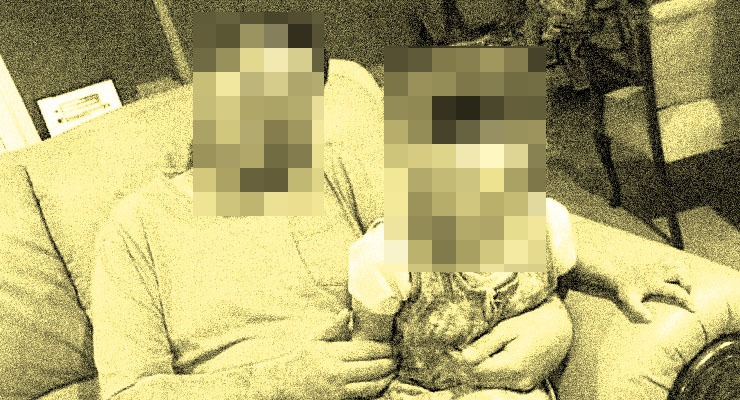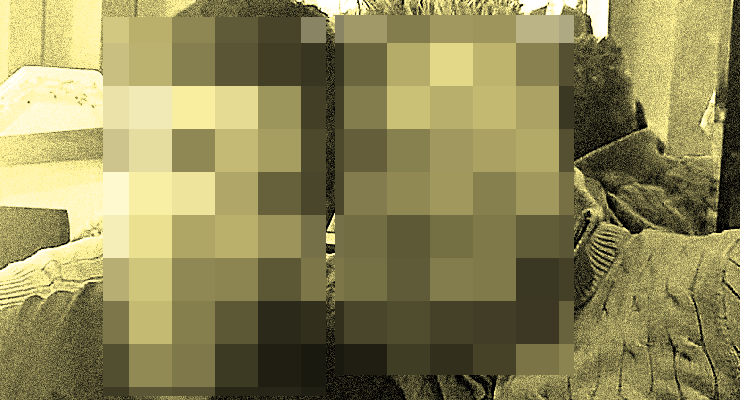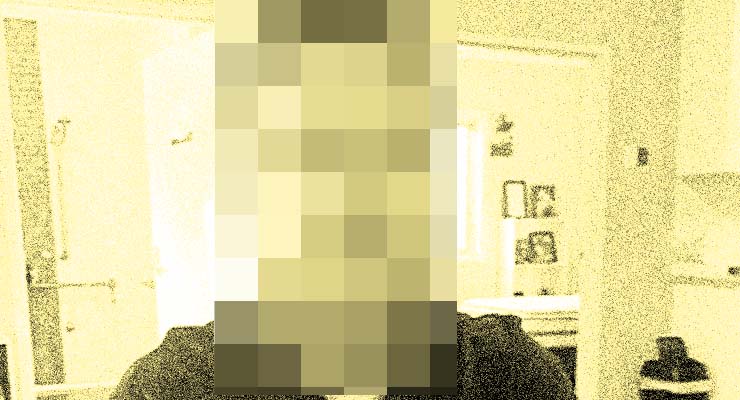
This article is part eight in a series. For the full series, go here.
Some readers may find aspects of this article distressing.
Jack* hasn’t seen his father, David*, and stepmother, Karen* in nine months. He’s 25 and has autism, an intellectual disability and epilepsy. Because of his high care needs, several years ago his parents (who are separated) decided to place him in the care of a public guardian to better manage his care.
David and Karen say they now deeply regret enlisting state help as the New South Wales public guardian has limited their access to Jack, moved him to supported living accommodation more than an hour’s drive away and closer to his biological mother. They say his quality of care has been cut back with limited outings, his social circle has shrunk because he lives alone, and his behaviour has become more complicated because of his changed circumstances.
“What he had up here, he doesn’t have over there, and my son is showing distress,” Karen said.
Jack is non-verbal. This doesn’t mean he can’t express his wishes but that he needs support to have his preferences interpreted. And in a stretched government system, that doesn’t always happen.
Family contact severed
For the past decade, Jack lived in a residential disability home a 10-minute drive from David and Karen and was taken on regular outings paid for through the National Disability Insurance Scheme (NDIS). He also spent the occasional weekend with his biological mother.
But when the residential home decided it could no longer accommodate Jack’s behaviour and was concerned about staffing issues from Jack’s separate support services organisation, the public guardian found accommodation in Sydney, a half-hour drive from his mother and more than an hour’s drive from David and Karen. Therapists have highlighted the bond between Jack and David.

Karen and David found an option closer to them, with support services provided by the same company he had always used.
In September last year, the tribunal made an order rejecting David and Karen’s application to move him but before the final tribunal hearing took place, Jack was moved to the new accommodation provider.
David says he spent about $45,000 on legal costs.
“This brought me financially to my knees,” he said. “[The public guardian has] total disregard for [Jack] as a person who needs care, disregard to follow procedures, disregard for the law and preserving the relationship with the father.”
Jack, like many people with autism, needs structure and becomes stressed if routines change.
Changes are best introduced gradually. Despite reports from occupational therapists stating living with one to three others would be best for him, he lives alone in a villa complex.
In 2020, Jack’s NDIS plan package value was $187,686. By the time he was moved into his new accommodation, it had increased to $689,979.
His outings have been limited to two to three days a week, with staff running “skills-building sessions” on other days of the week.
Jack is given lorazepam about once a week — an anti-anxiety drug used when he becomes aggressive and which often causes him to sleep and miss out on activities. Karen and David say he used to be given this only rarely.
This is known as a restrictive practice, the overuse of which has been repeatedly brought up as a violation of human rights in the disability royal commission.
The Victorian public advocate has said guardians rarely have the clinical skills to be able to monitor and seek to decrease restrictive practices, meaning they are asked for consent, rather than input.
The new home has been accused of unnecessarily sedating clients, of unexplained injuries and of double-dipping on rent fees, although it hasn’t received compliance and enforcement actions from the sector’s watchdog, the NDIS Quality and Safeguards Commission (and this isn’t uncommon).
Karen and David say Jack’s behaviour has regressed and he has become more aggressive towards staff.
They now have to submit a proposal through the public guardian to arrange to visit Jack. The acting NSW public guardian has said the family’s communication with it has been excessive and threatening and has said just one family member can contact it. Karen and David say they’ve been sending the same requests about Jack’s accommodation, medication and care over and over to no avail.

The accommodation has since cut Jack’s contact with Karen and David after “continued inappropriate communication” as they questioned his supports, and they haven’t visited him in person since January — partly due to COVID-19 restrictions.
Not being able to see Jack has been very difficult.
“As a father, it’s not about [Jack], it’s about the action of the guardians and the lack of accountability,” David said.
Even phone calls were barred, although after involving the police last month Karen and David were able to speak to Jack.
“It was good to hear him laugh,” Karen said.
The accommodation centre declined to comment when contacted by Crikey, while a spokesperson from the NSW trustee and guardian told Crikey public guardians are only used as a last resort.
“The decisions promote a person’s independence, increase their quality of life, protect them from harm, and facilitate positive relationships with family and friends, where possible,” the spokesperson said.
“At times, decisions we make may be at odds with the wishes of the person, their family, friends, and other key parties. We understand that decisions can be contentious and emotional however, our primary responsibility is to the person we represent and what is in their best interests.”
Decisions taken out of people with disabilities’ hands
The number of NDIS participants who have been placed under guardianship orders has skyrocketed in recent years.
Across 2018-19 there were 455 guardianship applications that related to NDIS participants in Queensland, and in Western Australia, the number of people with intellectual disability under a guardianship order overtook those with dementia for the first time in 11 years due to the implementation of the NDIS.
Advocacy groups have raised concerns unjustified guardianship applications are being made for NDIS participants “based upon unsubstantiated claims of incapacity or uncorroborated allegations of inappropriate conduct by current decision makers” where the person making the application seeks financial gain from a participant’s NDIS funding.
The NDIS has acknowledged there is an overuse of substitute decision-making and it has yet to develop a plan to build capabilities to support people’s decision-making instead of simply making decisions for them. A decision support pilot program has been launched and extended until 2022.
Although guardians have to be appointed by a court tribunal, plan nominees — who coordinate a person’s funding and supports, and work with the public guardian when there is one in place — are appointed without much oversight: 30% of those on the NDIS have a nominee, and the NDIS notes they may be appointed when they might not be necessary and without exploring other options.
There’s also limited NDIS guidance about when decisions should be made on a person’s behalf.

Supported decision-making, instead of substitute decision-making, should be a focus of public guardians across the country, La Trobe University disability researcher Professor Christine Bigby tells Crikey.
“Supported decision-making recognises the right of people no matter what their capacity to make their decision and have their will and preferences,” she said. “It doesn’t mean they have to make the decision themselves, but have a supporter formally recognised to help them decide and interpret their decisions.”
Bigby says that although many guardians are highly qualified and experienced, high caseloads and limited funds mean they often don’t have the capacity to support their clients in decisions. Accountability also had to be increased.
“It’s very susceptible to manipulation if you have sole control and no one is questioning you,” she said. “There has to be some form of accountability.”
Former NSW public guardian and Council for Intellectual Disability CEO Justine O’Neill tells Crikey the state’s guardianship laws were implemented in 1987 and needed to be revised to better fit in a human rights framework.
“The focus should shift to what support people need to be involved in decisions to the greatest extent possible, rather than focusing on whether they have capacity or not,” she said.
The United Nations has called for guardianship laws to be abolished, and the former disability discrimination commissioner Alastair McEwin describes substitute decision-making as “butchering a number of human rights”. Current disability discrimination commissioner Ben Gauntlett declined to be interviewed.
Conflicts of interest not addressed
There can be a conflict of interest between a service provider’s interests and a participant’s preferences, with nominees working for the company paid to provide supports, the NDIS has found.
This also limits a person’s say in how they live, with nominees and even support staff choosing what might be easiest or best for the company instead of the person they’re representing, with numerous meetings about a person’s care taking place without the NDIS participant present.
Professor emeritus at Sydney University law school Terry Carney tells Crikey some providers were profiting off guardianship legislation, with nominees pushing for services best for the company instead of the person with disabilities.
“This is the kind of conflict of interest tribunals should turn [their] mind to,” he said. “[Nominees] are at worst people with an acceptable conflict of interest, appointed by bureaucrats who ought to know better.”
*Names changed for privacy.
To read more pieces in this series, go here.
For legal reasons, please don’t identify yourself or others under guardianship or financial administration in the comments.








The road to hell is paved with good intentions.
Amber Thankyou
this article has made the watch dog NDIS contact us and is now investigating
It is sad that it took an article like this to kick start an investigation.
That is the biggest problem in this whole system: no transparency no accountability.
How does one challenge the State? How does one sue the State? How does How does one challenge the State when the State holds all the cards?
As they say “The House always wins”
We had contact the ombudsman and the NDIS commission both stated they couldn’t do anything now that we are starting to shine the light on this barbaric system they contact to investigate
This is a very complex and, at its core, apolitical. The systems of government that ‘protected’ aborigines morphed into the only ‘protection’ the state has trained itself to provide: paternalistic, standardised and delivered with arrogant confidence. Among many other human issues, government assistance must be reformed from a top-down approach to supporting citizen’s decisions within a defined range.
But while you outsource ‘ care’ to the market, you will get the bottom of the possible outcomes for society. The ‘market’ cannot be, and ought not be, eliminated. But it must be confined to its knitting: setting efficient prices.
Social support, which invariably involves emotional nuance, is never better when surrendered to Capitalism.